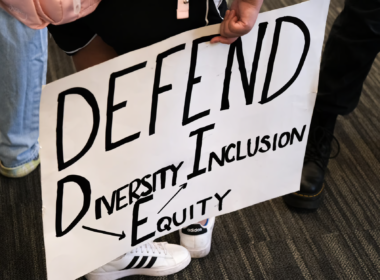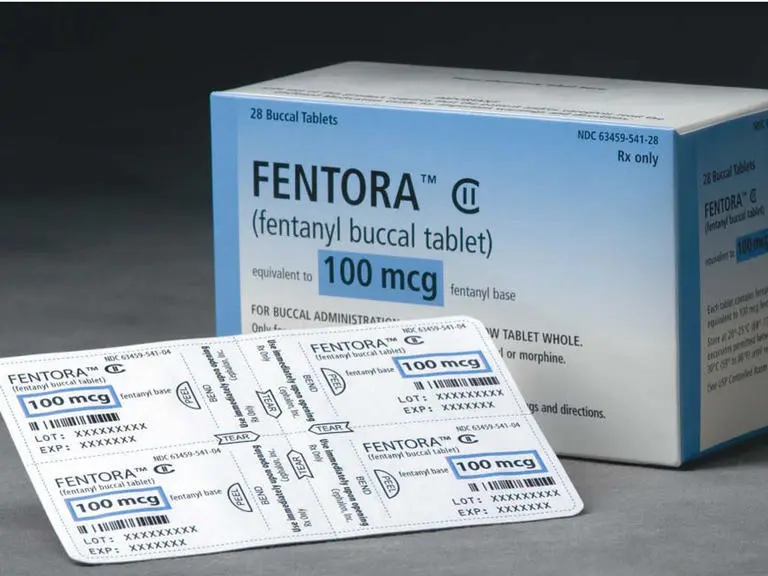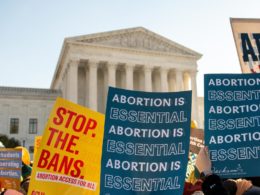The conservative media – Fox News in particular, although not exclusively – uses the immigration issue that continues to unfurl along and across the southern border that the United States shares with Mexicoto try to scare its audience into believing that, not only are prospective immigrants breaking the law in some malevolent manner by illegally entering the US, but that they are chiefly responsible for bringing harmful drugs into America. They say that the lives of Americans depend on refusing the desperate and deserving people who sit upon the other side of the American border. The problems associated with these arguments are, for these conservative outlets like Fox News, manifest and manifold to be sure.
What a “drug” is exactly, is somewhat nuanced in all honesty; everything that humans take into our bodies is composed of chemicals, of which have effects upon our person and functioning. But drugs are usually considered a medicine or substance that you get from the doctor or hospital, or else those powders, pills or plants of which are sold throughout neighborhoods in states across America. In years gone by, Fox would’ve spent more time speaking about those drugs in particular, but today, it spends seemingly endless segments, articles, and hours regarding Fentanyl.
Fentanyl is a horrifically strong synthetic opiate that is used in the medical world to treat unbelievable strong pain in patients. Most people who have and continue to die of fentanyl use around the world, however, were never even attempting to take the remarkably potent drug in the first instance. Fox News would be doing the public a greater service by explaining this, while ceasing to use the human rights nightmare that is represented by the US southern border crisis as an opportunity to paint Central and South American refugees as criminals and agents of drug cartels while broadcasting the play-acting of Police officers when they think they’ve actually found fentanyl.
People continue to die of fentanyl – not because they are desperate to take fentanyl – but because those drugs of which they do wish to purchase, and that are deemed to be illicit, are illegal in the United States, and, therefore, are not purchasable by the population within a safe, regulated and protected marketplace. Fentanyl is used by drug cartels and organizations to cut drugs from speed to cocaine to opiates and so on, in order to make their own production cheaper and the effects of their drugs – in their eyes, hopefully – more powerful at the same time; while fentanyl is killing many people accidentally across the country and world, those people are, in most cases, only taking it into their bodies because they believe it to be something that they do actually want to take into their bodies instead.
This is not too dissimilar to what plagued the United States at the turn of the 19th century where, as the 20th century came, embalming fluids were being added to milk, and both foods and medicines were often mixed with horrific chemicals; concerning alcohol, the feds were even sometimes guilty of this themselves. Meat was often close to spoiling before it ever even left the processing plants and might have once been a vector for smallpox vaccines, while many purchasable items were either harmful or simply did nothing at all. What the United States did, however, was not to make milk or meat illegal – although booze would be for over a decade by the end of the second decade of the century. No, instead, they simply created acts like the famous Pure Food and Drug Act of 1906 and the less famous and earlier Biologics Control Act of 1902.
The United States of today, however, must look to the United States of 120 years ago for help in dealing with the real human costs of the consumption of substances – whether legal or illegal – that aren’t what they appear to be. Instead of scapegoating, often racistly, the problem onto individuals or vague groupings of people who allegedly use substances, or onto immigrants upon the southern border of the US, America would be wise, forward-thinking, economically cogent, and morally correct to go beyond the decriminalization of drugs, and toward the legalization and regulated availability – to adults of a certain age – of all drugs.
“If in this world there is one misery having no relief, it is the pressure on the heart from the Incommunicable. And if another Sphinx should arise to propose another enigma to man–saying, what burden is that which only is insupportable by human fortitude? I should answer at once: It is the burden of the Incommunicable…”
– Thomas de Quincey, “Confessions of an English Opium Eater”
To start out with, and to put it quite bluntly, making those formerly-illegal substances safer, regulated, taxed, and available for people who will be buying them on the street if not in the store anyway, will save lives and will make the current smuggling campaign by every international and domestic criminal organization across the world untenable and without such a positive profit as they currently make. Furthermore, outside of the obvious, positive economic, as well as individual and collective health implications of such an innovation, a better, more educated and empathetic society will also lead to a healthier, more transparent existence for users of these substances too – which ultimately matters regardless of the path that each individual life takes.
As Portugal, as well as a handful of other nations, have shown us over the years since they each decriminalized drugs, this act does not mean that a society necessarily condones the use of hard drugs, nor that it wishes for its citizens to actively use them either. On the contrary, it illustrates that those societies understand that substance use is neither a crime nor a habit for which a person should be hated, despised or looked down upon for having to some degree. Criminalizing drug use also does nothing to help the drug user, because imprisoning drug users certainly and simply isn’t helpful, and making their problem or problems stigmatized and criminalized only forces individuals to withdraw from society and hide their habits, feelings and true selves from those that love them or can help them best.
Legalizing all drugs, therefore, would be a massive social innovation in so many different aspects. It would take power out of the hands of bloodthirsty and greedy, coercive mafias, cartels and organizations; it would bring tax revenues to the states and federal government for something that people are going to be doing with or without official consent, of which could be spent to improve the lives of all people in local communities, states, and the nation at large. Apart from those innovations, it would save lives and remove so many poor souls from the jails and prisons of the nation, and would aid in the process of bridge-building between the greater society in its entirety and those drug users who, as briefly alluded to previously, in so many circumstances – today and historically – have been cast out onto the periphery of society because of their habit and the stigma associated with it.
Therefore, by decriminalizing drugs as substances as well as recreational drug use, the people of the society will ultimately suffer less as a whole – in numerous ways – than they do currently. While the sale of the drug must be taxed and the quality standardized, the creation of safe injection or high locations for those who are enthralled by some particularly addictive substance or substances is also right to do, and, as a nation and society, only creates greater communication, compassion and transparency amongst humanity as a whole. And, when the people who use these drugs are finally ready to quit – should that day come – as it does for so many people each day, they can openly communicate their problem, as well as this new need of theirs, and can be properly helped by the relevant public and private channels and institutions.
Yet by keeping drugs illegal, there remains illicit and untested, unregulated drugs flittering across the society, which is obviously and objectively dangerous; the illegality of drugs also maintains the stigma of individual drug use too, which, contrary to common or popular belief, does not stop the interested parties from trying or using substances, but only inhibits their ability or desire to communicate about their feelings and struggles in a hyper-judgemental society. In other words, it only damages recovery and rehabilitation efforts.
But concerning the dangers of currently-illicit drugs, modern prohibition has not stopped the deaths from horrifyingly piling up, any more than historical prohibition was able to. By keeping alcohol illegal throughout the 1920s, the US could do little to stop the illegal flow of poisonous or overpowering alcoholthat spread across the nation despite prohibition. Stated logically and properly today, however, it is clear – again, as history demonstrates – that that which the population will consume must be regulated to see that it meets the standards fit for human consumption – and that logically should mean regarding recreational drugs as well as anything else; from the point of legalization forward, a more honest, thorough and transparent education – funded partially by the legalization of drugs – can be afforded and provided to the society, from family life to school life, in order to properly protect the society from abusive drug use.
Education and better life opportunities and standards – not prohibition – have always been the keys to the discussion regarding substance use, public safety, and legalization. Taking the approach outlined above, however, is how a nation saves lives, betters their society, and collects tax money, all while breaking the pockets of organized crime and organizations and abstaining from pinning blame erroneously upon refugees merely seeking a better future in a safer place. US drug policies invite fentanyl traffickers across the United States border, not our compassion, just as US human rights policies are now attracting abortion drug smugglers; understanding this as this nation must, it is high time that America finally took responsibility for its drug problem, remedied and saved itself from it, and protected those immigrants looking for better lives all at once.









